Sustainable, eco-friendly, zero-waste… these have become buzzwords among those who try to minimize their impact on our planet. But what are some practical ways we can incorporate these ideals in our daily routine? I’ve compiled a list of many changes you can make to help you live more sustainably, ranging from easier, beginner swaps to more advanced lifestyle changes.
*Please note that you should always prioritize your mental health first. Not every sustainable swap will be right for every person or every lifestyle.
Beginner Swaps
These are swaps I’m sure you’ve heard of, and perhaps you already have made a few of these changes. These sustainable swaps take the least amount of adjustment. Most will actually save you money without much of a hassle at all!
Metal/Silicone Straws:
Surely by now you’ve heard about the sea turtles who all too often wind up with straw-related injuries. Honestly, a straw is one of the easiest single use plastics to eliminate. If you can’t bring yourself to just drink out of the glass, keep a reusable straw in your purse or car. They are available just about everywhere and are inexpensive. One straw can last a lifetime!
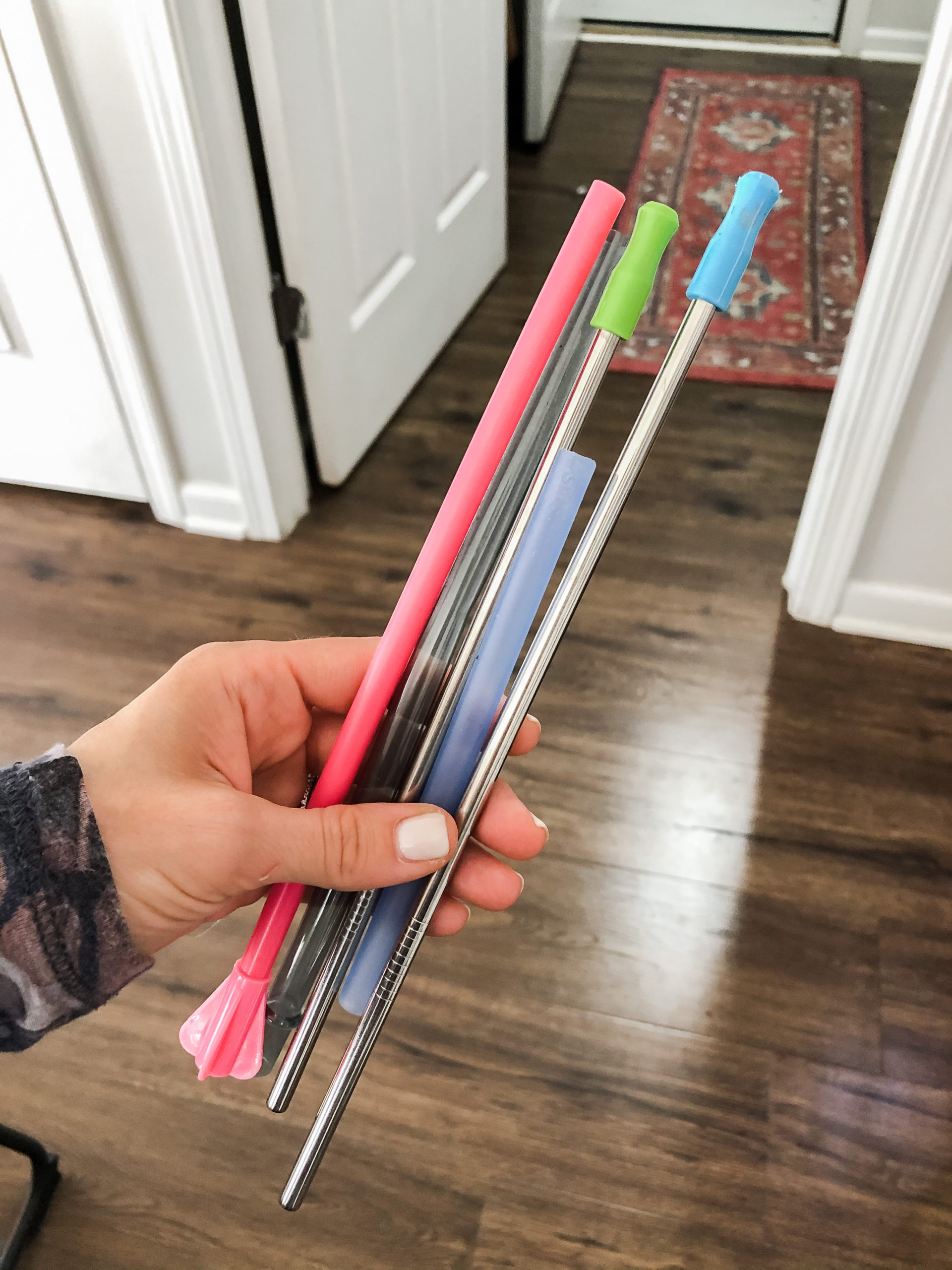
Reusable K-Cups:
I could preach for years on why you should dump your K-Cup addiction, but I’ll just say this is so easy if you just give it a chance. Consider switching to a drip coffee maker, french press coffee, or using a reusable K-Cup, which you can fill with whatever freshly ground coffee you prefer. It’s a lot cheaper, more sustainable, and more scrumptious than buying prefilled K-Cups! Bonus points for choosing a locally roasted coffee like Indie Coffee Roasters.
Coffee at Home:
Another budget friendly way to reduce your waste, a homemade coffee can cost anywhere from $0.08 to $0.50, depending on your taste. That’s a huge savings from the average $5 to $7 drink at Starbucks, and you’re also eliminating to-go cups, lids, stirrers, receipts, napkins, etc.
Reusable Cups & Bottles:
I get it, sometimes you just need to grab a bottle of water for the road. I know they are convenient, but it takes two seconds to fill up a thermos or tumbler! Again, they are available everywhere and one can last years. On average, one reusable water container replaces about 500 water bottles per year. And the savings! No more buying cases of water. This one is a no brainer sustainable swap.
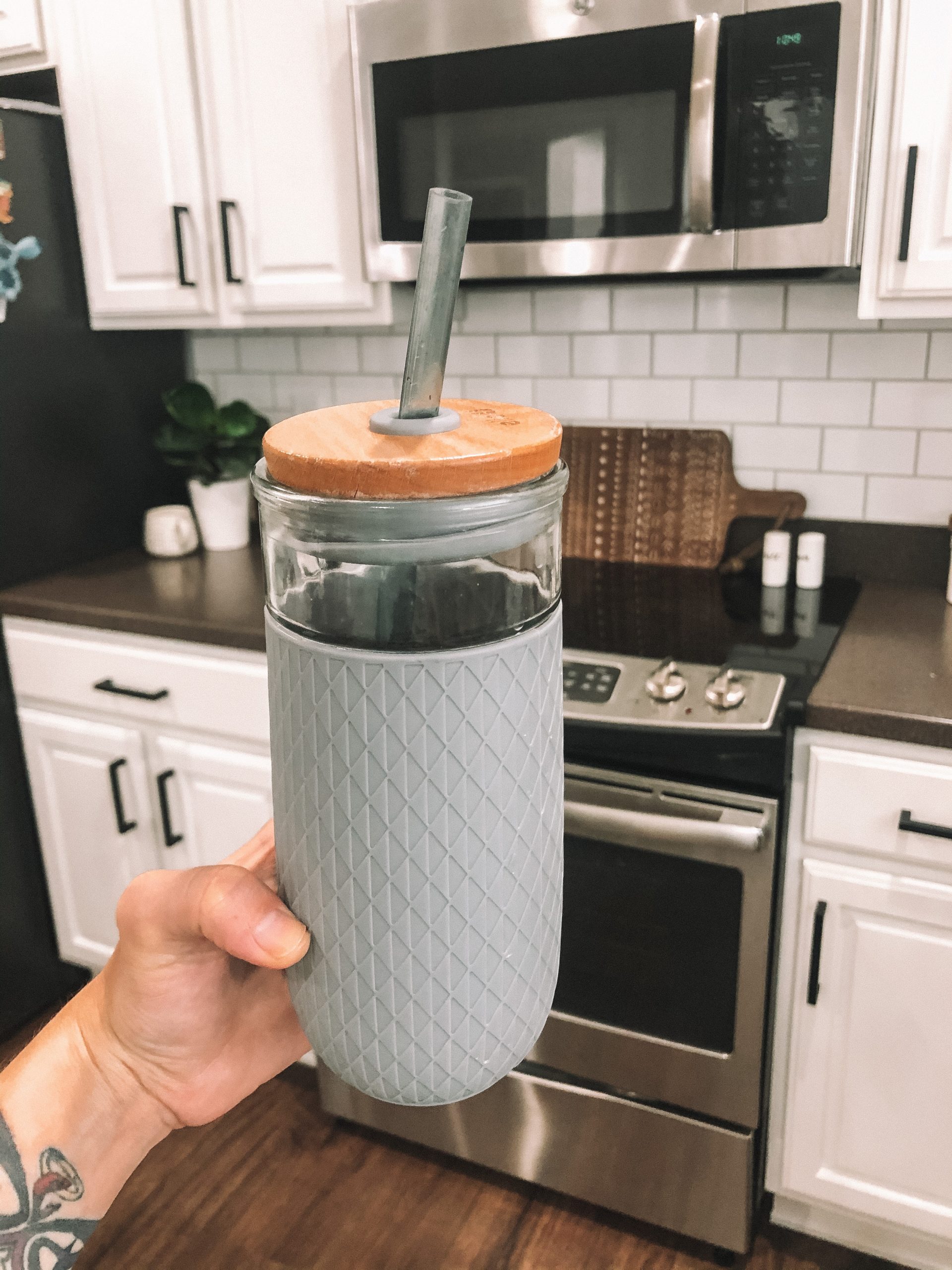
Body Wash vs Bar Soap:
Body wash is another super easy plastic to eliminate. Bar soap is an easy swap. Bonus points for finding a natural or homemade soap with little to no packaging. Boujeesoapco is a locally owned small business you can check out, or you can find similar soaps at Fresh Thyme and other markets. You can also swap your shampoo and conditioners for the bar versions!
Loose Leaf Tea vs. Tea Bags:
Using loose leaf tea instead of tea bags not only reduces waste, but you also avoid chemicals that can leach from the paper bags, like epichlorohydrin, bleach, and micro plastics like PVC and nylon. Metal and silicone tea infusers can be found just about anywhere.
Sustainable Drinking Options:
Hard seltzers are all the rage right now, and I’m guilty of indulging on occasion. But there are so many more eco-friendly ways to drink. Single serving cans (beer, seltzer, even wine cans) are not ideal. Consider swapping to a refillable glass growler, which can hold about 6 cans of beer. Next time you head to a cookout or party, stop by Mashcraft or Four Day Ray Brewing to fill your growler, or opt for a bottle of wine instead of grabbing a canned beverage. Bonus points for choosing a local wine or beer!

Dryer Sheets vs. Wool Dryer Balls:
Another easy swap, dryer balls can be found at most grocery stores in the laundry aisle. Choose one that is made from 100% natural materials. Admittedly, they don’t curb static quite as well as dryer sheets, but adding a few drops of your favorite essential oil to the balls before tossing them in the dryer will soften your clothes up and leave them smelling amazing, without the waste and chemicals!
LED Light Bulbs:
This swap, although super easy, will cost a little up front, but the savings definitely outweigh the purchase price. LEDs use 85% less energy than regular light bulbs and last much longer.
Secondhand Clothing:
Consider shopping garage sales, hand me downs, Facebook Marketplace, and second-hand stores before buying new. Secondhand clothing reduces the strain on the environment from clothing manufacturing and shipping, reduces the use of material resources, avoids support of unfair labor practices, saves a TON of water (clothing manufacturing is one of the leading uses of water in the US), and keeps unwanted clothing out of landfills. This also is a huge money saver. I typically save at least 80% by buying secondhand!
Intermediate Swaps
These swaps may take a bit more dedication, and may require a shift of mindset and purchasing patterns.
Bamboo Toothbrush & Toothpaste Tablets:
Instead of replacing your plastic toothbrush every 6 months, consider using a bamboo toothbrush instead. Similarly, try a toothpaste tablet instead of a plastic tube. There are several options available online. Bonus points if you decide to try a homemade tooth powder!
Avoid Food Packaging:
When grocery shopping, try to scout out the option with the least amount of packaging. Condiments often come in glass bottles instead of plastic. Choose eggs in cardboard cartons instead of the styrofoam ones. When purchasing meat or dairy, get it from the deli counter and bring your own container. Select bulk produce and dry goods instead of the bagged option.
Kroger is my favorite option for package free produce, I almost always find everything on my list without plastic. Again, avoid the plastic produce bags and just toss it in your cart or your own bag from home.
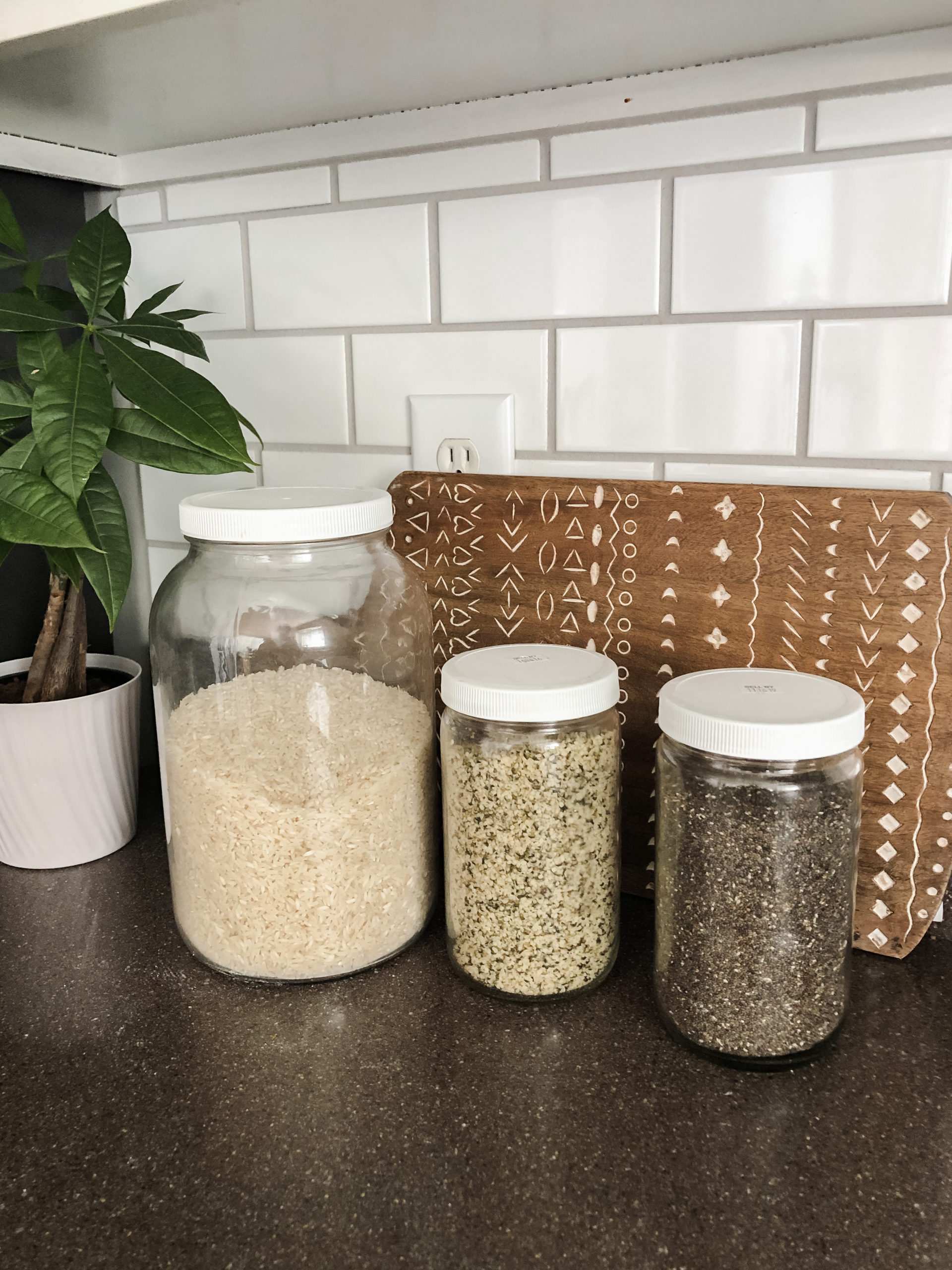
Reusable Food Storage Bags & Wraps:
Silicone bags (like Jill & Joey) are great alternatives to single use plastic bags and wax wraps are an easy swap for cling wrap and foil. They are also great replacements for plastic produce bags when grocery shopping. You can often find alternatives like these at local farmer’s markets. Bonus points for making wax wraps yourself!
Plant-Based Diet:
Eating a plant-based diet is the single most effective way to reduce your impact on our planet. I know it’s a hot topic, so I’ll let you do your own research on greenhouse gasses, water consumption, and the health effects. One important key to keeping your vegan diet sustainable is to focus on whole foods, and save the fun products and meat replacements for occasional use. Even if you aren’t ready to fully dive in, try Meatless Monday, or perhaps reduce your animal consumption one category at a time (fish, dairy, poultry, red meat). Every little effort helps.
Safety Razor:
Swap your plastic razors for a nice safety razor and consider it an act of self care! These can be a bit of an investment and there is definitely a learning curve when making the transition. The savings will outweigh the investment usually in the first year.
Cloth Diapers:
The amount of diapers that exist in our landfills is alarming. Not to mention the chemicals we expose our precious baby bums to. Cloth diapering is honestly not as overwhelming as it may seem. If this is something you are interested in, find a friend or a facebook group that can walk you through the process. Cloth diapers are also a great money saving swap! Bonus points for using second-hand cloth diapers and/or making your own wipes.
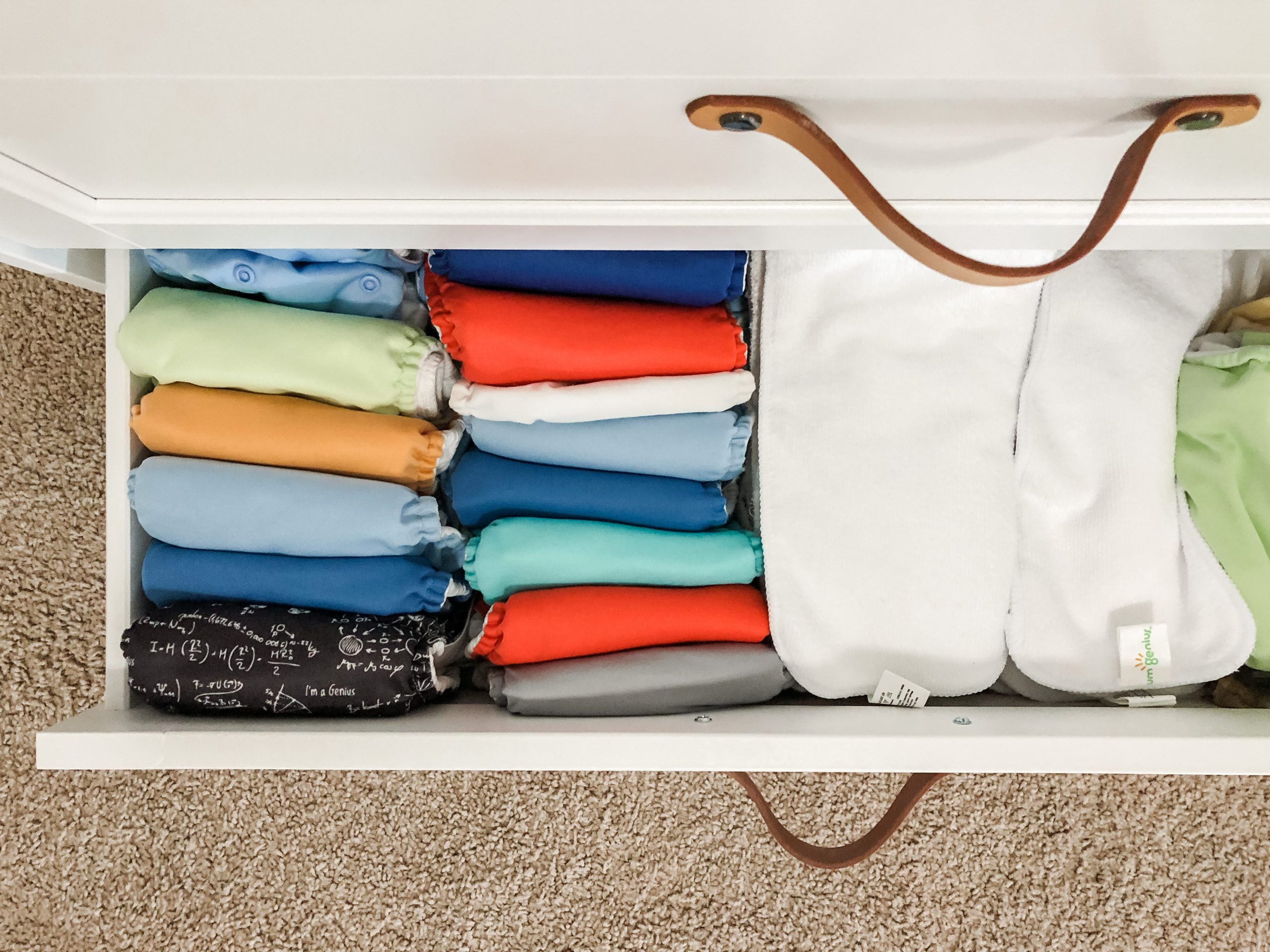
Natural & DIY Cleaners:
Consider swapping your chemical cleaners in plastic bottles for all natural and homemade versions you can store in glass bottles. A quick Google search will provide you with steps to make many household cleaners using safer ingredients like vinegar, lemon, baking soda, and essential oils.
Eliminate Paper Products:
Reducing disposable items wherever possible is a very effective way to reduce your waste. Use washcloths instead of paper towels, real dishes instead of paper, hankies instead of kleenex, fabric squares and coconut oil instead of makeup wipes, etc.
Advanced Lifestyle Changes
Admittedly, these changes will take more time, effort, or finances. As mentioned above, not all of these suggestions are realistic for everyone. Not everyone is ready for these or has the time or mental space to take them on. I’ve included them for the reader who is ready to take the next step, or perhaps is just curious to learn more.
Natural & DIY Toiletries:
Just like making your own cleaning products, toiletries like deodorant, tooth powder, dry shampoo, and even lotions and soaps are just a Google search away. There are countless ways to make them, so find one that speaks to your fancy. If you have the time, these are so much better for the planet and your body, and can often be budget friendly.
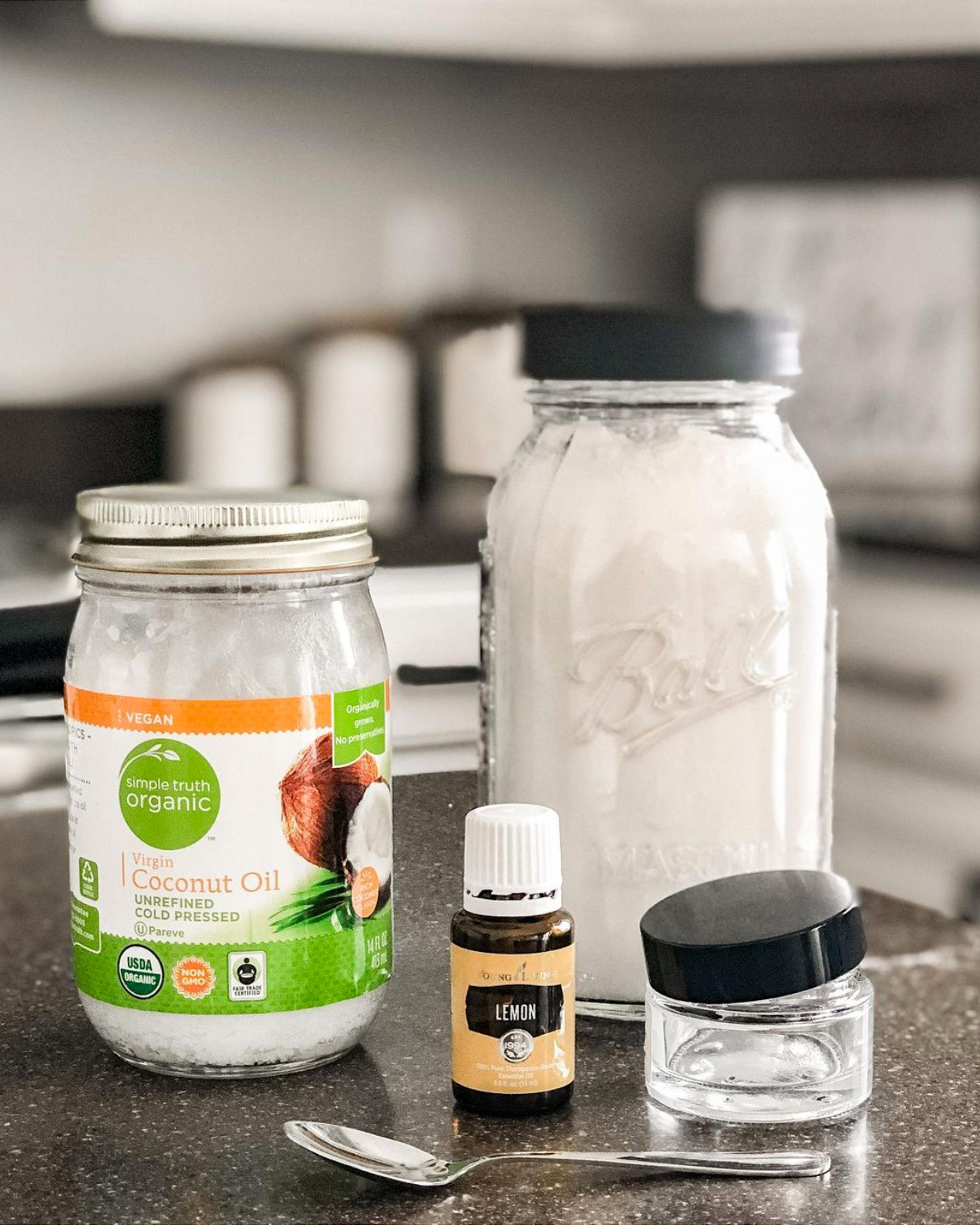
Composting:
Time, knowledge, and space can be the limiting factors for this one, but if you are interested in learning more, there are facebook groups and many books at the library that can walk you through adding this to your sustainable lifestyle. Green With Indy is a great resource if you want to help, but don’t want to take on the whole process by yourself.
Sourcing Everything Secondhand:
This is a step up from just buying your clothes secondhand. Thrifting is the ultimate way to recycle goods, find unique treasures, and reduce the demand for new items.
Line Dry Clothing:
Forgo the dryer and hang your clothing to dry on a clothesline or drying rack. They are cheap and easy to find and any supermarket or home store. If you don’t do this yet because you like softer clothes, just toss them in the dryer for a few minutes to soften them up instead of running a full cycle.
Family Cloth or Bidet:
Reusable toilet paper? You probably just gagged. But there are varying levels of sustainable toilet practices, from installing a bidet, to using cloth “pee squares” and even, yes, washing and reusing toilet cloths.
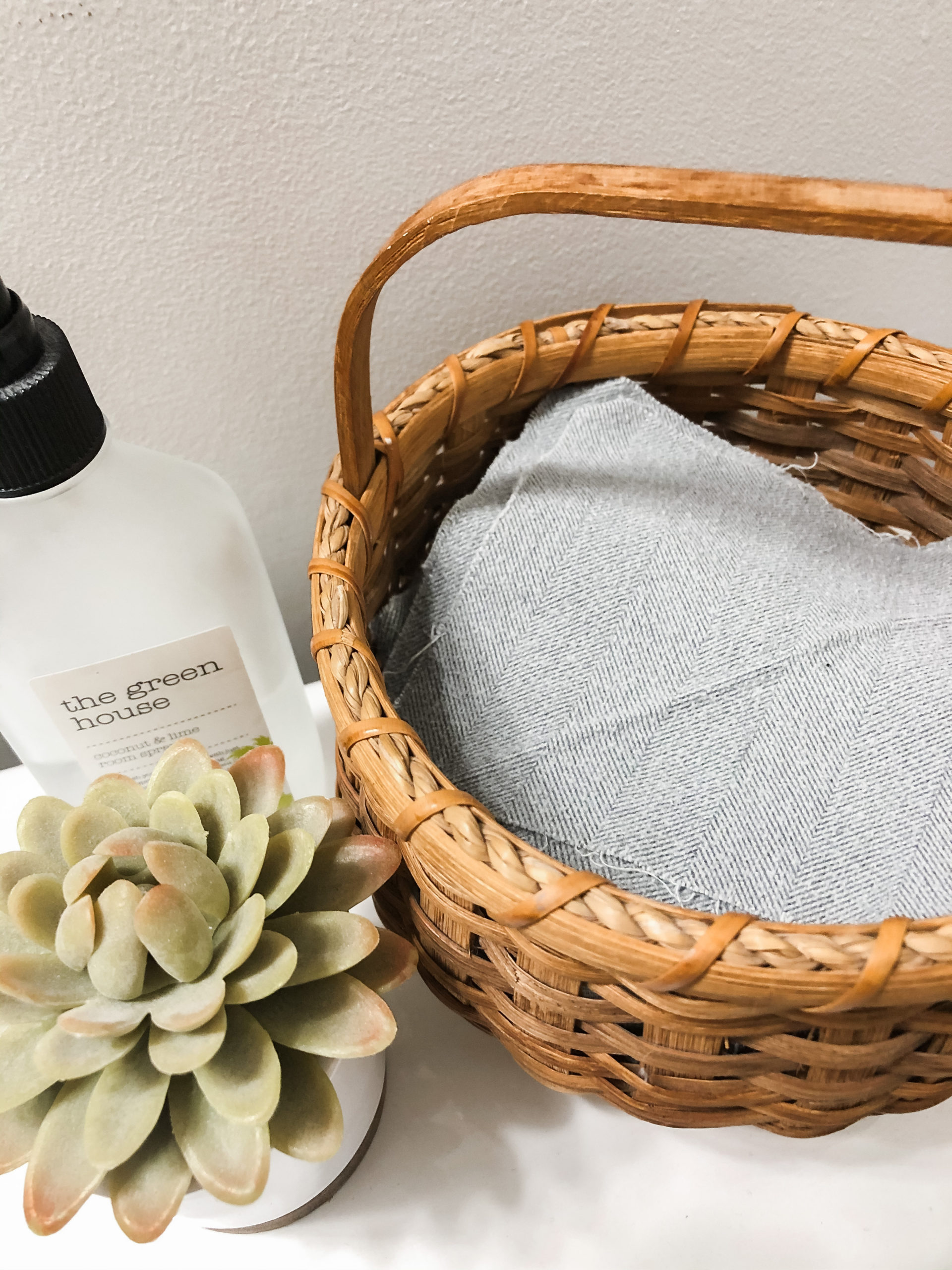
Homemade Goods & Homegrown Food:
This is definitely a next-level swap. You can pick and choose what you have time or talent to take on, but every little thing makes a difference. Some ideas include:
- Make breads, crackers, pastas, sauces, condiments, etc. at home instead of buying packages.
- Grow and can your own produce.
- Make or repair clothing.
- Make gifts instead of buying them.
There are countless other ways to avoid consumerism and make it yourself, so choose these options whenever possible.
Avoid Flying:
Obviously there are some circumstances that you just can’t avoid it, but commercial flying is responsible for high levels of damaging emissions, reportedly more so than any other human activity. If you can possibly drive the distance, you should. If you can’t drive for whatever reason, choose a nonstop flight without a layover.
There are an infinite number of ways you can reduce your footprint, or impact, on our planet. If you have any questions about how to implement these suggestions, or have your own ideas, please reach out to me and I will be happy to walk you through whichever sustainable swaps you are willing to try! Remember, not everyone will be able to adopt all of these practices, so just do what you can- every little step is better than nothing!
Did this list inspire you to make some changes in your daily life? Did you try one of these suggestions and like the outcome? Contact me on Instagram or Facebook.
Keep Fishers Beautiful, the City’s annual celebration of volunteerism and sustainability, brings together residents, homeowner’s associations, local businesses, and organizations to support the vibrancy of our City and neighborhoods. This year, you can get involved from the comfort of your own home with ways you can Keep Fishers Beautiful at home, at work, and in your community. Learn more.
Kelly Yale is a long-time resident of Fishers (she’s lived here since she was 12!) who lives on the east side of the city. She loves hiking in parks, cooking and trying new restaurants, visiting the Fishers Farmers’ Market, and spending time with her family. Wife and daughter of small business owners, she’s passionate about local businesses and loves exploring shops around the City. She is vegetarian and tries to avoid plastic and waste as much as possible, along with buying secondhand instead of new. Her favorite thing about Fishers is experiencing all of new things that it has to offer since she was a child, while still being able to reminisce on her childhood memories here. She has a 9 year old daughter and welcomed a baby boy in October. Follow her on Facebook and Instagram.

